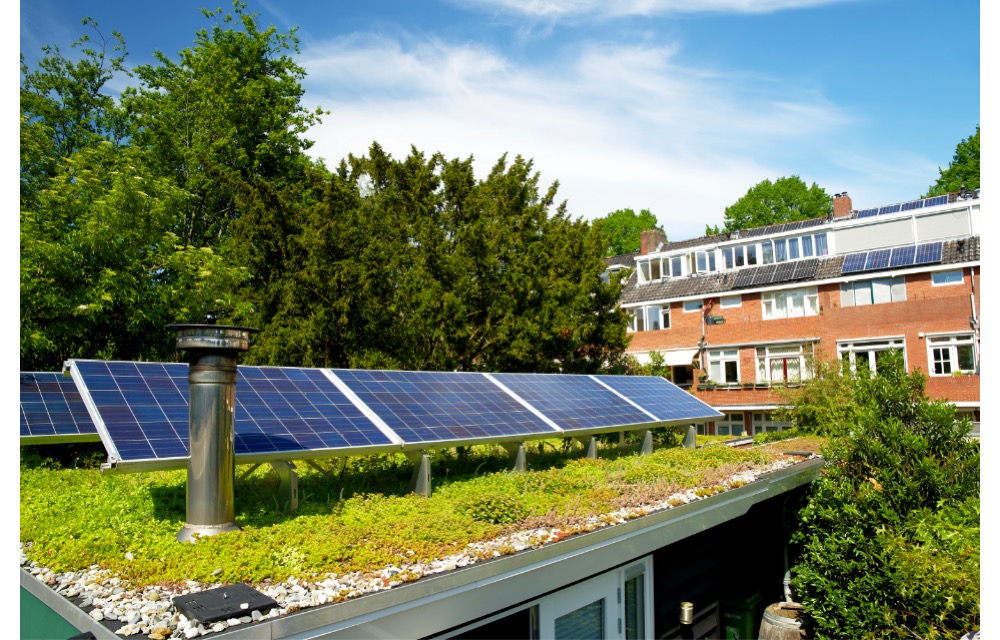- The European Parliament has formally adopted EPBD that brings with it the EU Solar Standard
- It makes it mandatory for all new residential buildings to become solar powered by 2030
- Public and non-residential buildings too will need to go solar if found technically and economically suitable
- SPE demands effective integration of these measures into construction practices and building requirements
The European Parliament has formally adopted the revised Energy Performance of Buildings Directive (EPBD) under which the EU Solar Standard mandates all new residential buildings in the bloc to be rooftop solar powered by 2030. Public and non-residential buildings will need to deploy solar progressively if found technically and economically suitable, depending on their size.
The EPBD is designed to reduce energy consumption and GHG emissions from the buildings sector as the bloc targets climate-neutrality by 2050. The EU Parliament and Council had already reached a provisional agreement for the same as part of the Fit for 55 package in December 2023 (see ‘Milestone’ For Renewable Energy Deployment In EU).
Currently, the EU’s building segment accounts for 40% of the bloc’s energy consumption and 36% of GHG emissions. Making buildings energy efficient is aimed at enhancing its energy independence and sustainability by reducing the use of imported oil and gas fuels.
The European solar PV lobby industry association SolarPower Europe (SPE) has welcomed the move saying it will require new commercial and public buildings to install solar PV panels by 2026. Existing commercial and public buildings that undergo renovation will need to incorporate solar panels by 2027.
New residential buildings must be solar powered by 2029 and all existing public buildings should follow suit by 2030, according to the directive that was adopted with 370 votes to 199 with 46 abstentions.
According to the upcoming rules, all new buildings occupied or owned by public authorities will need to become zero-emission by 2028 and all new buildings to be zero-emission by 2030.
The member states will need to spell the measures they plan to adopt to decarbonize heating systems in order to phase out fossil fuels in heating and cooling by 2040. Standalone fossil fuel boilers will not be subsidized from 2025; however, hybrid heating systems with renewable energy will be eligible for financial incentives.
“This law will help bring down energy bills and addresses the root causes of energy poverty, while delivering thousands of high-quality, local jobs across the EU. Tackling 36% of Europe’s CO2 emissions, it adds an absolutely essential pillar to the European Green Deal,” said the Rapporteur for the Energy Performance of Buildings Directive Ciarán Cuffe.
The new rules do not apply to agricultural and heritage buildings. The member states are also at liberty to exclude other buildings for their special, architectural or historical merit.
The SPE wants the bloc to adopt good practices from similar measures adopted by 9 European countries, including France, Belgium, the Netherlands, Switzerland, Italy, Austria and Germany.
Rooftop solar is already the leading power generation source in the EU, as identified in SPE’s European Market Outlook for Solar Power 2023-2027. Out of the 56 GW new solar installed in the bloc in 2023, 37 GW comprised rooftop PV. It had gone up from 24 GW in 2022 (see EU Solar PV Installations Reach 56 GW In 2023).
SPE’s Senior Policy Advisor Jan Osenberg now demands, “The implementation of the Directive must translate law into reality, with effective integration into construction practices and building requirements. Exemptions, support measures, and system design criteria will have to be defined. Ministries and stakeholders have the opportunity to draw upon the best practices established in nine European countries where similar measures have already been implemented.”
The EPBD now needs a formal endorsement by the Council of Ministers to become a law.















